While
sobriety means you've stopped using substances,
recovery represents a more expansive odyssey of transformation. You'll find that sobriety focuses specifically on
abstinence, whereas recovery addresses the root causes of
addiction, helps you develop coping strategies, and rebuilds relationships damaged by substance use. Your path to wellness requires both: maintaining abstinence while working through the deeper physical, emotional, and social aspects of healing. Understanding these distinct components will strengthen your foundation for lasting change.
Understanding the Core Distinctions
While many people use the terms "sobriety" and "recovery" interchangeably, understanding their distinct meanings is crucial for effective
substance treatment. When you're simply sober, you're abstaining from substance use, but
recovery encompasses a deeper expedition of
personal transformation that extends far beyond abstinence.
Brain disease research has shown that addiction causes significant changes in critical brain regions, making recovery more complex than just maintaining
sobriety. Recovery represents an extensive approach to holistic well-being, addressing the root causes of addiction and fostering sustainable change. You'll find that sobriety can be temporary, focusing solely on avoiding substances, while recovery involves developing new
coping strategies, healing trauma, and rebuilding relationships. Through recovery, you're not just eliminating substances; you're actively working on
emotional growth, mental health, and creating a meaningful life. This distinction matters because long-term success often depends on embracing the full scope of recovery rather than pursuing sobriety alone. Studies indicate that
engaging in recovery activities leads to significantly better outcomes than focusing on abstinence alone. The recovery journey is strengthened through supportive community connections, which provide essential encouragement and understanding throughout the process.
The Physical and Mental Aspects
As you advance through treatment, you'll experience significant physical changes, from
improved organ function to better sleep patterns and
renewed energy levels. Your mental clarity will steadily increase as your brain chemistry rebalances, leading to
amplified cognitive abilities and more stable emotional responses. These physical and psychological improvements work together synergistically, creating a positive feedback loop that reinforces your recovery path and general wellness. Many individuals in recovery also notice their
fatty liver reverses, as the body begins to heal from the effects of long-term alcohol consumption. FDA-approved medications can help support these improvements by
targeting neural circuits that facilitate healthy brain changes during recovery. Maintaining a proper diet with
balanced nutrition becomes crucial for improving overall mood and supporting sustained recovery.
Body Changes During Abstinence
When you commence the expedition of
substance recovery, your body undergoes significant physical and psychological changes that can feel overwhelming at the outset. During the initial weeks, you'll experience
withdrawal symptoms like sweating, shaking, and GI disturbances, but these gradually subside as your body adjusts to functioning without substances. Regular
aerobic exercise can help manage withdrawal symptoms and reduce cravings during this challenging period. The recovery process includes improvements in
executive functioning as the brain heals with continued abstinence. Your
organ repair timelines vary depending on the substance used, but you'll notice improvements in liver and GI tract function as healing progresses.
Appetite restoration typically occurs after initial withdrawal symptoms fade, and you'll need to focus on nutrient-rich foods to support your recovery.
Good sleep hygiene becomes increasingly important as your
sleep patterns normalize within about two weeks, while your brain's
reward system continues healing over several months. Remember, these changes signify your body's remarkable ability to heal and restore itself during sobriety.
Mental Clarity After Detox
The restoration of
mental clarity marks a significant milestone in your
recovery path. You'll notice improvements in thinking, decision-making, and emotional regulation as your brain begins to heal. While initial
cognitive gains may be modest in the early stage after detox, significant recovery typically occurs within 12-14 months of
sustained sobriety. Research shows that
88.4 percent of individuals in recovery report positive mental well-being. Your mental clarity timeline depends on several factors, including the substance used, duration of use, and your commitment to treatment. With
three out of four people ultimately achieving recovery from addiction, the odds of regaining mental clarity are in your favor. Regular
cognitive function assessments will track your progress as your brain demonstrates remarkable plasticity. You'll experience amplified attention, working memory, and emotional balance, especially with consistent engagement in behavioral therapies and strong social support. Remember, completing your treatment program substantially increases your chances of achieving full mental clarity and maintaining
long-term recovery success.
Healing Mind-Body Connection
Understanding your
mind-body connection forms a crucial foundation for
lasting recovery success. When you engage in substance use, it disrupts your brain's natural chemistry, particularly affecting
neurotransmitters that regulate mood and pleasure. Through
mindfulness practices, yoga, and meditation, you'll restore healthy endorphin production and strengthen
emotion regulation skills. Similar to
peer-reviewed journals, evidence-based research validates these holistic approaches. Your body and mind work together as an integrated system during recovery. As you maintain abstinence, your brain gradually repairs itself, especially in areas controlling decision-making and reward processing. Mind-body practices help reduce stress and anxiety while interrupting the cycle of cravings. Substance abuse often leads to
increased drug tolerance, requiring progressively larger amounts to achieve the same effects. By participating in holistic treatments like yoga and meditation, you're not just healing physically - you're developing sustainable coping mechanisms that support both mental and
physiological recovery. This extensive approach greatly improves your chances of long-term success. Research shows that
mindfulness-based therapies can significantly decrease substance cravings while improving stress management.
Key Components of Recovery Programs
Successful recovery programs integrate multiple
evidence-based components that work together to support lasting sobriety. Through
careful program customization and
community engagement, you'll find
extensive support that addresses both physical and psychological aspects of addiction.
Recovery requires comprehensive support, blending proven treatments with personalized care to heal both mind and body.
Key elements of effective recovery programs include:
- Evidence-based therapies like CBT and Motivational Interviewing to help you reframe negative thoughts and strengthen your commitment to change
- Medication-assisted treatment when appropriate, combining FDA-approved medications with counseling to manage withdrawal and reduce cravings
- Lifestyle modifications, including structured routines, wellness activities, and social support through peer groups and 12-step programs
These components work synergistically, providing you with the tools, support, and structure needed to build a
strong foundation for sustained recovery.
Achieving and Maintaining Sobriety
Building on these foundational program components, achieving and maintaining
sobriety represents a complex expedition that combines personal commitment with evidence-based strategies. You'll face significant challenges, as statistics show 40-60% of individuals experience
relapse, but this doesn't indicate treatment failure. Rather, it's part of the
chronic disease process that requires ongoing monitoring and accountability. Your success rates improve substantially through a vital approach that includes
medication-assisted treatment, strong
family support, and participation in
continuing care programs. Research indicates that customized treatment plans addressing your specific needs, combined with active engagement in support groups, can help you maintain long-term sobriety. Remember, while genetics influence addiction risk, environmental factors and social support networks play essential roles in your recovery trek.
Building a Long-Term Recovery Foundation
Building a
sturdy support network of family, peers, and treatment professionals is vital to your long-term recovery success, as research shows those with strong social support systems have markedly lower relapse rates. You'll need to actively maintain these connections through regular
12-step meetings, family therapy sessions, and community engagement activities that reinforce your recovery goals. Establishing
daily wellness routines that include proper nutrition, regular exercise, stress management, and adequate sleep will help strengthen your
recovery foundation while providing structure and healthy coping mechanisms.
Essential Support Networks Needed
While commencing the trek of
long-term recovery, you'll need a strong foundation of
interconnected support networks that work together to sustain your progress.
Professional treatment facilities,
trauma-informed care, and
spirituality-based interventions serve as essential anchors in your odyssey. Your recovery success relies heavily on building these indispensable support pillars:
- Formal treatment networks staffed by credentialed professionals who provide evidence-based interventions and structured guidance
- Peer support groups like AA or NA, where you'll find emotional support and shared experiences from others who've walked your path
- Family and social connections that create accountability and motivation, combined with stable housing options that protect your newfound sobriety
Daily Wellness Habits Matter
As you establish
long-term recovery, creating
structured daily wellness habits becomes the cornerstone of your
sustained sobriety. With 16-18 hours of newly available time after stopping substance use, it's essential to fill these hours purposefully. Understanding the
habit adoption pace of roughly 66 days can help you set realistic expectations as you build new routines. Your productive time use should include regular sleep schedules, nutrition, and exercise - all critical components for both physical and emotional stability. By engaging in
meaningful activities and maintaining consistent schedules, you'll strengthen your self-control while reducing anxiety and depression risks. Keep in mind that rest is just as significant; it's actually the most common activity in early recovery. Through
structured daily wellness practices, you're not just avoiding triggers, you're actively building a foundation for lasting recovery.
Support Systems and Their Vital Role
The cornerstone of
successful substance recovery lies in strong support systems, which dramatically improve long-term sobriety outcomes.
Community-based initiatives and resource accessibility play imperative roles in maintaining sustained recovery, with peer support groups showing particularly promising results. Your chances of maintaining sobriety increase considerably when you engage with
comprehensive support networks:
- Family involvement correlates with higher completion rates and sustained abstinence
- Peer support groups like AA and NA serve as the most widely used recovery pathway
- Structured continuing care programs can reduce relapse rates from over 50% to as low as 8%
You'll find that combining
professional treatment with community support creates a sturdy foundation for recovery. While barriers to access exist, connecting with available support systems remains essential for your long-term success.
Breaking the Cycle of Relapse
Breaking free from relapse patterns requires an in-depth understanding of your unique triggers and the development of effective coping mechanisms. By implementing mindfulness-based interventions and avoiding high-risk situations, you'll strengthen your recovery foundation. Creating a structured routine while maintaining awareness of both internal and external triggers can considerably reduce relapse risks.
| Prevention Strategy |
Benefits |
Implementation |
| Daily Journaling |
Emotional processing |
Track triggers and feelings |
| Exercise Routine |
Natural mood enhancement |
Schedule regular workouts |
| Mindfulness Practice |
Stress reduction |
Use grounding techniques |
Remember that setbacks aren't failures but growth opportunities. When you experience a relapse, reflect on the circumstances that led to it and adjust your prevention strategies accordingly. Maintain open communication with your support system and consider seeking professional guidance to refine your coping skills and strengthen your commitment to recovery.
Creating a Sustainable Path to Wellness
Moving beyond relapse prevention,
sustainable wellness demands a thorough approach that integrates multiple dimensions of health and recovery. Through individualized approaches and
holistic interventions, you'll develop an all-encompassing strategy that addresses your unique needs and circumstances. To create
lasting change, focus on these essential components:
- Combine physical wellness practices like nutrition, exercise, and sleep hygiene with emotional healing through therapy and mindfulness
- Build a strong support network, including family, peers, and professionals, while engaging in community-based activities that reinforce your recovery
- Pursue ongoing personal growth through skill development, education, and meaningful goal-setting that aligns with your values
Frequently Asked Questions
Can Someone Be in Recovery Without Being Completely Sober?
Yes, you can be in
recovery without complete sobriety. Recovery focuses on enhancing your general wellness and quality of life, which may include partial abstinence or
harm reduction approaches. While some treatment programs require complete sobriety, others recognize that recovery can involve reducing substance use, developing healthier coping skills, and
rebuilding relationships. Your recovery path is unique, and success isn't solely measured by total abstinence.
How Long Does It Typically Take to Transition From Sobriety to Recovery?
While you can achieve
physical sobriety within days or weeks, shift timelines to
genuine recovery typically span months to years. Your recovery progression generally begins with "initial recovery" in the primary 6-12 months after becoming sober. You'll find that this path isn't linear; it's a gradual process where you'll develop
coping skills, address underlying issues, and build a sustainable support system. With proper support and commitment, you'll move through these phases at your own pace.
What Percentage of People Maintain Long-Term Sobriety Without Formal Recovery Programs?
Research shows that only about 10% of people maintain long-term sobriety without
formal programs. While factors influencing sobriety maintenance include your personal support system and initial drinking patterns, you'll have better long-term sobriety outcomes when engaging in
structured recovery programs. Without formal support, you're more likely to experience
relapse within 16 years. You can greatly improve your chances of sustained sobriety by participating in professional treatment, counseling, or support groups.
Does Insurance Typically Cover Recovery Programs Differently Than Sobriety-Focused Treatments?
Yes, you'll find that
insurance typically covers recovery programs more extensively than
sobriety-focused treatments. Thanks to insurance coverage parity laws, your insurance must offer equal benefits for substance use treatment as they do for medical care. While formal recovery programs often receive coverage for therapy, medication, and structured treatment program benefits, sobriety-focused approaches like peer support groups typically aren't covered unless they're part of a licensed, medical treatment plan.
Are There Cultural or Religious Differences in Approaches to Sobriety Versus Recovery?
Yes, you'll find
significant variations in how different cultures and religions approach sobriety versus recovery. Some spiritual beliefs emphasize
complete abstinence as the primary goal, while others integrate broader healing practices. Cultural traditions often determine whether the focus is on individual sobriety or
community-based recovery. For example, Native American approaches typically adopt holistic recovery through
ceremonial healing, while some Islamic traditions might prioritize strict sobriety aligned with religious doctrine.
 While many people use the terms "sobriety" and "recovery" interchangeably, understanding their distinct meanings is crucial for effective substance treatment. When you're simply sober, you're abstaining from substance use, but recovery encompasses a deeper expedition of personal transformation that extends far beyond abstinence. Brain disease research has shown that addiction causes significant changes in critical brain regions, making recovery more complex than just maintaining sobriety. Recovery represents an extensive approach to holistic well-being, addressing the root causes of addiction and fostering sustainable change. You'll find that sobriety can be temporary, focusing solely on avoiding substances, while recovery involves developing new coping strategies, healing trauma, and rebuilding relationships. Through recovery, you're not just eliminating substances; you're actively working on emotional growth, mental health, and creating a meaningful life. This distinction matters because long-term success often depends on embracing the full scope of recovery rather than pursuing sobriety alone. Studies indicate that engaging in recovery activities leads to significantly better outcomes than focusing on abstinence alone. The recovery journey is strengthened through supportive community connections, which provide essential encouragement and understanding throughout the process.
While many people use the terms "sobriety" and "recovery" interchangeably, understanding their distinct meanings is crucial for effective substance treatment. When you're simply sober, you're abstaining from substance use, but recovery encompasses a deeper expedition of personal transformation that extends far beyond abstinence. Brain disease research has shown that addiction causes significant changes in critical brain regions, making recovery more complex than just maintaining sobriety. Recovery represents an extensive approach to holistic well-being, addressing the root causes of addiction and fostering sustainable change. You'll find that sobriety can be temporary, focusing solely on avoiding substances, while recovery involves developing new coping strategies, healing trauma, and rebuilding relationships. Through recovery, you're not just eliminating substances; you're actively working on emotional growth, mental health, and creating a meaningful life. This distinction matters because long-term success often depends on embracing the full scope of recovery rather than pursuing sobriety alone. Studies indicate that engaging in recovery activities leads to significantly better outcomes than focusing on abstinence alone. The recovery journey is strengthened through supportive community connections, which provide essential encouragement and understanding throughout the process.
 Building on these foundational program components, achieving and maintaining sobriety represents a complex expedition that combines personal commitment with evidence-based strategies. You'll face significant challenges, as statistics show 40-60% of individuals experience relapse, but this doesn't indicate treatment failure. Rather, it's part of the chronic disease process that requires ongoing monitoring and accountability. Your success rates improve substantially through a vital approach that includes medication-assisted treatment, strong family support, and participation in continuing care programs. Research indicates that customized treatment plans addressing your specific needs, combined with active engagement in support groups, can help you maintain long-term sobriety. Remember, while genetics influence addiction risk, environmental factors and social support networks play essential roles in your recovery trek.
Building on these foundational program components, achieving and maintaining sobriety represents a complex expedition that combines personal commitment with evidence-based strategies. You'll face significant challenges, as statistics show 40-60% of individuals experience relapse, but this doesn't indicate treatment failure. Rather, it's part of the chronic disease process that requires ongoing monitoring and accountability. Your success rates improve substantially through a vital approach that includes medication-assisted treatment, strong family support, and participation in continuing care programs. Research indicates that customized treatment plans addressing your specific needs, combined with active engagement in support groups, can help you maintain long-term sobriety. Remember, while genetics influence addiction risk, environmental factors and social support networks play essential roles in your recovery trek.
 The cornerstone of successful substance recovery lies in strong support systems, which dramatically improve long-term sobriety outcomes. Community-based initiatives and resource accessibility play imperative roles in maintaining sustained recovery, with peer support groups showing particularly promising results. Your chances of maintaining sobriety increase considerably when you engage with comprehensive support networks:
The cornerstone of successful substance recovery lies in strong support systems, which dramatically improve long-term sobriety outcomes. Community-based initiatives and resource accessibility play imperative roles in maintaining sustained recovery, with peer support groups showing particularly promising results. Your chances of maintaining sobriety increase considerably when you engage with comprehensive support networks:









